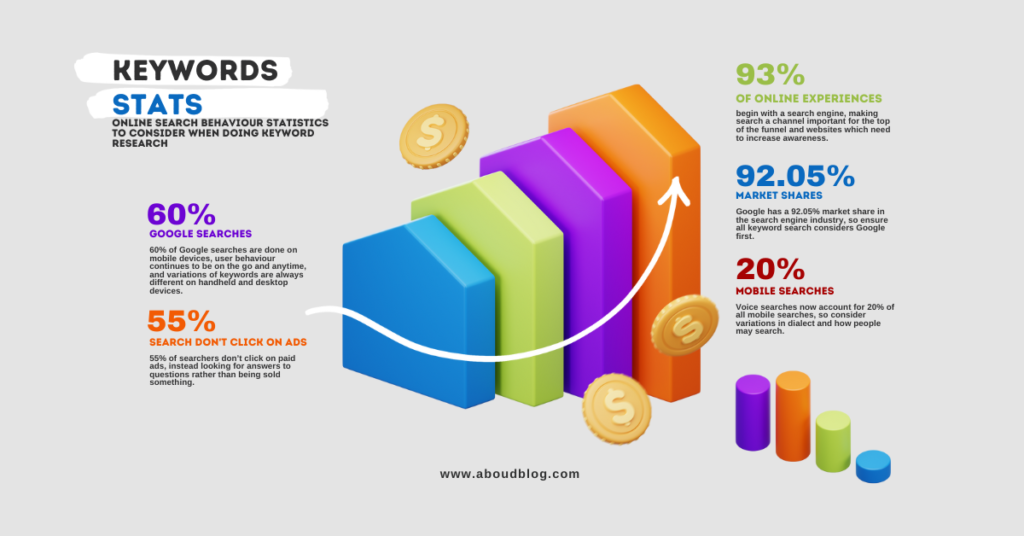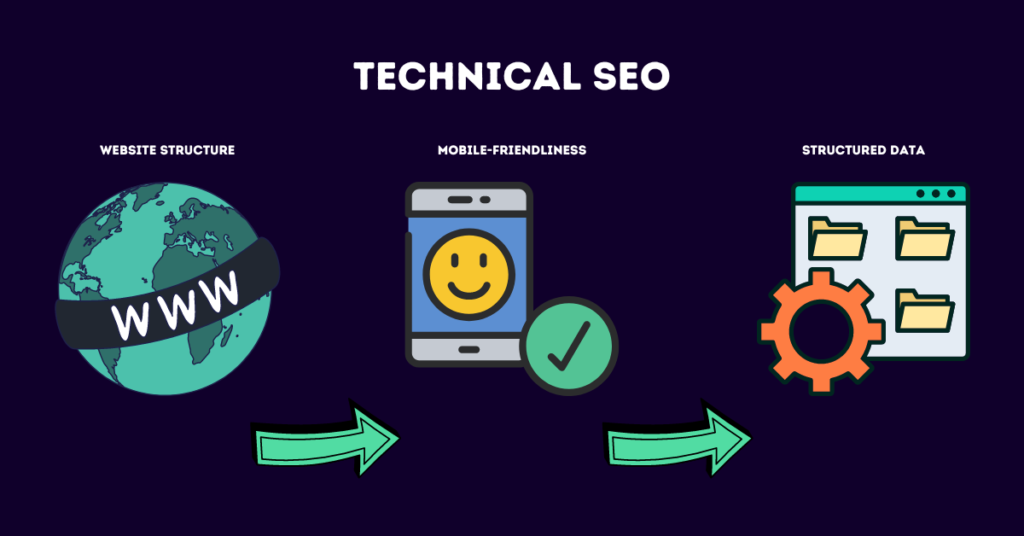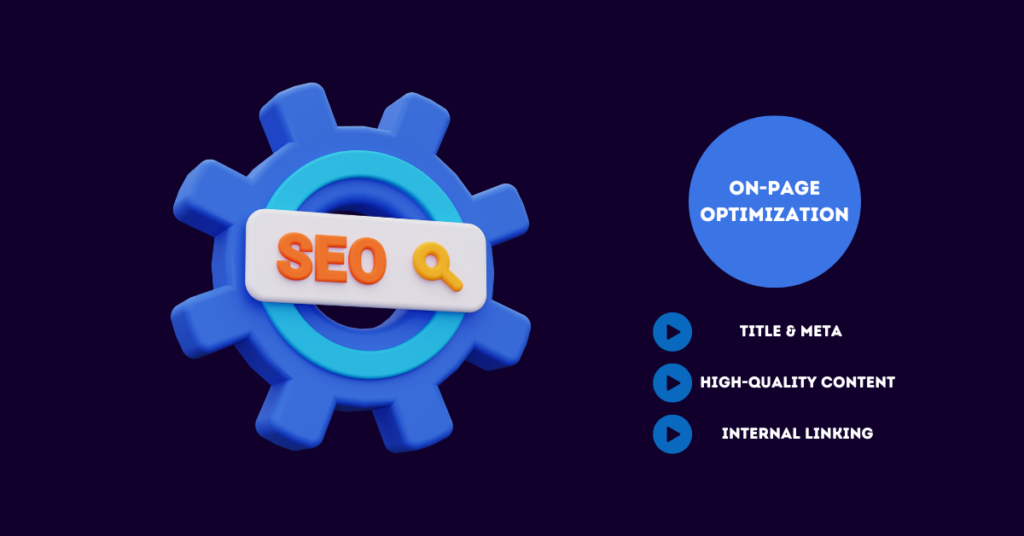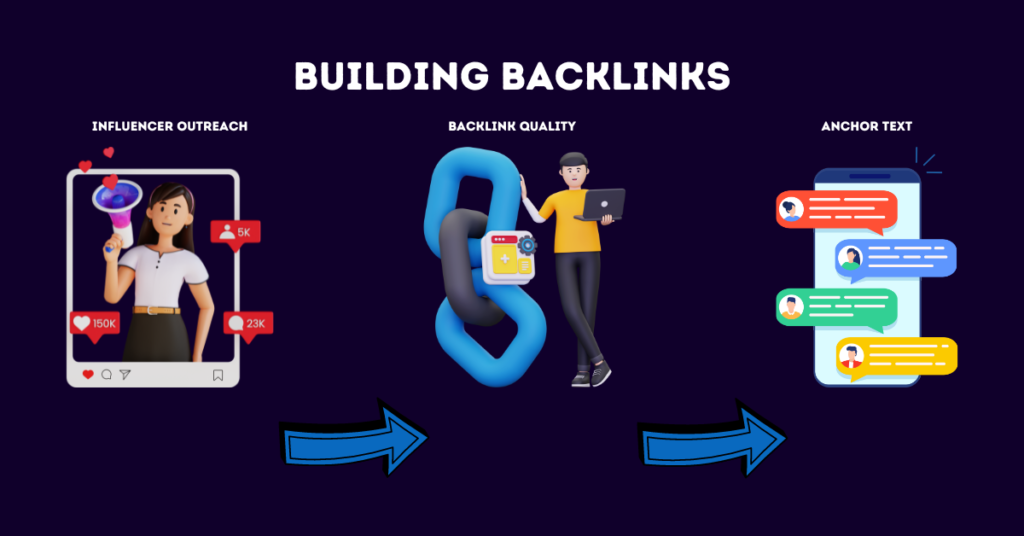SEO Skills: Mastering Essential Techniques for Success
SEO skills are integral to digital marketing success. Mastering SEO skills is crucial for a successful career in the industry.
The right tools and programming knowledge are essential to optimize web pages effectively.
Understanding the critical components of SEO and developing relevant soft skills are necessary for professionals aiming to excel in this industry. Having the right tools is crucial for success in this career.
Mastering Keyword Research and Optimization

Understanding User Intent in Keyword Research
Understanding user intent is crucial in keyword research to align the content with users’ searches.
This is a fundamental aspect of any effective SEO strategy, and it’s essential to consult with SEO experts and specialists to optimize on-page SEO.
By analyzing search queries, SEO specialists can identify the intent behind each query, whether it’s informational, navigational, or transactional. Tools used by SEO experts can help with page SEO.
This insight allows SEO experts and pros to select the most relevant keywords for optimization using tools and skills.
Utilizing Long-Tail Keywords for Targeted Optimization
Long-tail keywords, favored by SEO experts and pros, play a vital role in the SEO process as they cater to specific search queries and have lower competition.
Utilizing tools can enhance the optimization process. Incorporating long-tail keywords into the content allows websites to rank higher for niche topics and attract more qualified traffic.
SEO pros use tools and a method to achieve this. For instance, instead of targeting “SEO skills,” using a long-tail keyword like “mastering SEO tools for e-commerce websites” with the help of experts can yield better results.
Implementing Keyword Optimization Across Content and Meta Tags
Keyword optimization should be seamlessly integrated into both content and meta tags to enhance search engine rankings. SEO experts and pros often use tools for this task.
When creating content, strategically placing relevant keywords and utilizing SEO tools throughout the text naturally signals what the page is about to search engines.
SEO experts can provide valuable insights into optimizing keyword placement for better visibility.
Moreover, optimizing meta tags with targeted keywords such as title tags and meta descriptions contributes significantly to improving search visibility for SEO experts. Using the right tools can also enhance this process.
Proficiency in Technical SEO

Importance of Website Structure and Crawlability
Utilizing tools and expertise from SEO experts, a well-structured website makes it easier for search engines to crawl and index its pages.
As SEO experts recommend, a logical hierarchy, straightforward navigation, and internal linking enhance user experience and help search engines understand the site’s content.
Optimizing Site Speed and Mobile-Friendliness
Fast-loading websites, recommended by SEO experts, provide a better user experience, leading to higher engagement and lower bounce rates.
Mobile-friendliness is crucial for SEO, as a significant portion of web traffic comes from mobile devices.
An SEO expert can help optimize websites for mobile-friendliness. Both factors are essential for successful SEO.
Implementing Structured Data for Enhanced Search Visibility
Structured data, such as schema markup, helps search engines understand the context of the content on a webpage.
It can lead to rich snippets in search results, providing more information to users before they click through to the website.
Strategies for Effective On-Page Optimization

Crafting Compelling Title Tags and Meta Descriptions
Crafting compelling title tags and meta descriptions is essential for on-page optimization. These elements improve the page’s visibility in search results and entice users to click through to the website.
Including relevant keywords in these tags can significantly impact organic traffic.
Creating High-Quality, Relevant Content with Proper Formatting
Creating high-quality, relevant content with proper formatting is crucial to on-page optimization. This involves incorporating strategic placement of keywords, using headings and subheadings, and ensuring readability.
Well-formatted content enhances user experience and contributes to better search engine rankings.
Optimizing Internal Linking for Improved User Experience
Optimizing internal linking is pivotal in enhancing user experience on a website. Visitors can seamlessly navigate through different sections by strategically interlinking relevant pages within the site.
This increases the time users spend on the site and helps search engines understand the website’s structure and hierarchy.
Building and Acquiring Quality Backlinks

Leveraging Guest Blogging and Influencer Outreach
Guest blogging involves writing and publishing articles on other websites, allowing you to include a backlink to your site.
This not only increases your website’s visibility but also helps in building quality backlinks.
Similarly, influencer outreach involves collaborating with influential individuals in your industry who can link to your content, increasing its reach and authority.
Evaluating Backlink Quality and Relevance for SEO Impact
Assessing the quality and relevance of the websites linking to yours is crucial. High-quality backlinks from authoritative websites positively impact SEO.
Conversely, irrelevant or low-quality backlinks can harm your website’s ranking.
Understanding the Role of Anchor Text Diversity
Diversifying anchor text is essential for natural link acquisition. Using various anchor texts such as branded, naked URLs, or generic terms instead of repetitive keyword-rich anchors helps create a diverse and organic link profile.
This diversity signals search engines that the links are obtained naturally rather than artificially manipulated.
Analytical Skills for Data-Driven SEO
Utilizing Google Analytics and Search Console for Insights
Google Analytics provides valuable data on website traffic, user behavior, and conversions. It helps understand which SEO strategies are effective and which areas need improvement.
Search Console complements this by offering insights into how the site appears in search results, allowing for optimization of click-through rates and keyword performance.
Interpreting Key Performance Indicators for SEO Measurement
Analyzing key performance indicators (KPIs) such as organic traffic, bounce rate, and conversion rates is crucial for evaluating the success of SEO efforts.
Understanding these metrics helps identify trends, make informed decisions, and adjust strategies to achieve better results.
Implementing A/B Testing for Continuous Improvement
A/B testing involves comparing two versions of a web page or element to determine which performs better.
This method allows SEO professionals to experiment with strategies like title tags or meta descriptions to understand what resonates best with users.
Websites can improve their search engine rankings and user engagement by continuously testing and refining elements based on data-driven insights.
The Art of Communication in SEO
Collaborating with Content Creators and Web Developers for SEO Alignment and link-building best practices is essential.
It involves working closely with the editor to ensure search engine optimization is effectively implemented.
Effective communication with content creators and web developers ensures the website’s content aligns with SEO strategies.
By clearly outlining keyword targets, meta tags, and content structure requirements, SEO professionals can guide content creators to produce optimized material.
Similarly, collaborating with web developers involves communicating technical SEO needs like site speed optimization, mobile responsiveness, and URL structures.
Communicating SEO Strategies to Stakeholders Effectively
Communicating SEO strategies to stakeholders requires clarity and persuasion. It involves articulating the impact of SEO on organic traffic growth, lead generation, and, ultimately, revenue.
Providing clear reports on keyword rankings, organic traffic trends, and conversion rates can help stakeholders understand the value of SEO efforts.
Using accessible language without jargon ensures that stakeholders from various departments comprehend the importance of implementing SEO strategies.
Addressing Technical Issues with Clear Communication within the Team
When addressing technical issues within the team, concise and precise communication is essential.
Clearly explaining technical problems related to website indexing, crawl errors, or structured data enables swift resolution by web developers or IT personnel.
Moreover, fostering an environment where team members feel comfortable asking questions or seeking clarification promotes effective problem-solving through open communication channels.
Adaptability and Continuous Learning in SEO
Staying Updated with Search Engine Algorithm Changes
SEO professionals must stay updated with the frequent changes in search engine algorithms, such as Google’s updates.
This involves monitoring industry news, attending webinars, and following reputable SEO blogs to understand the latest algorithm modifications.
Embracing New Tools and Technologies for SEO Advancements
Adapting to new tools and technologies is crucial for enhancing SEO skills. For example, keyword research tools like SEMrush or Ahrefs can provide valuable insights into search trends, competition analysis, and keyword opportunities.
Adapting Strategies Based on Evolving Consumer Behavior
Adapting strategies based on evolving consumer behavior is essential in SEO. Understanding user intent and adjusting content strategy accordingly can significantly impact a website’s search visibility.
For instance, recognizing the shift towards voice search can prompt content optimization for long-tail keywords that align with natural language queries.
Cross-collaboration and Project Management
Coordinating with Marketing, Design, and Development Teams
Effective SEO involves close coordination with various marketing, design, and development teams.
This collaboration ensures that the SEO efforts are integrated seamlessly into the overall business strategy.
For instance, working with the marketing team helps align content strategies to improve search engine visibility and user engagement.
Managing Timelines and Resources for Successful SEO Projects
Project management is crucial for successful SEO endeavors. It involves setting realistic timelines for keyword research, content creation, and website optimization tasks.
Managing resources efficiently ensures SEO projects stay on track and deliver results within the specified timeframes.
By collaborating with developers, marketers can ensure that the technical aspects of a website are optimized according to industry trends.
This can involve improving site speed, implementing structured data markup for rich snippets in search results, or enhancing mobile responsiveness – all of which contribute to better rankings and increased organic traffic.
Conclusion
Mastering essential SEO skills is crucial for achieving success in the digital landscape. Each facet plays a pivotal role in enhancing online visibility, from keyword research to technical SEO, on-page optimization, and building quality backlinks.
Analytical prowess and effective communication are equally indispensable for driving impactful SEO strategies.
Moreover, adaptability, continuous learning, and cross-collaboration are imperative for staying ahead in the ever-evolving realm of search engine optimization.
As the digital sphere continues to evolve, staying abreast of the latest trends and algorithm updates is paramount.
Embracing a proactive approach to mastering these skills will elevate one’s proficiency in SEO and contribute to delivering exceptional results for businesses and clients.
Frequently Asked Questions
What are the essential SEO skills for beginners?
To excel in SEO, beginners should master keyword research, understand technical SEO, and learn effective on-page optimization strategies.
Developing analytical skills and communication abilities will be crucial for a well-rounded foundation in SEO.
How vital is adaptability in the field of SEO?
Adaptability is essential in SEO due to the constantly evolving nature of search engine algorithms and digital marketing trends.
Professionals must stay updated with industry changes and be willing to adjust their strategies to remain competitive and effective.
Why is cross-collaboration essential for successful SEO projects?
Cross-collaboration allows for the integration of diverse expertise, enhancing the overall quality of SEO projects.
By working with professionals from various disciplines, such as content creation, web development, and data analysis, comprehensive strategies can be developed for better results.
How does mastering keyword research impact SEO success?
Mastering keyword research enables professionals to understand user intent and behavior, allowing them to optimize content effectively.
By targeting relevant keywords with high search volume and low competition, websites can improve their visibility and attract more organic traffic.
Why is proficiency in technical search engine optimization crucial for website performance?
Understanding page speed, best practices, and programming knowledge is essential for maximizing website effectiveness.
Proficiency in technical SEO ensures that websites are optimized for search engine crawling and indexing.
This includes site speed, mobile-friendliness, structured data implementation, and URL structure – directly impacting a website’s performance in search engine results pages (SERPs).






